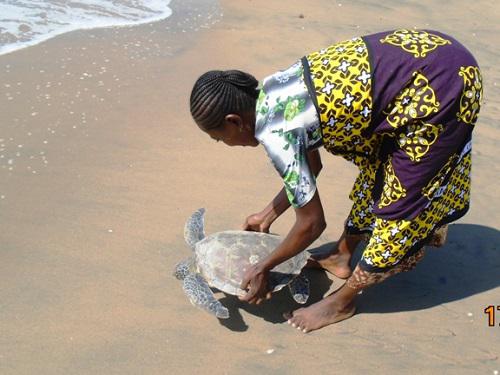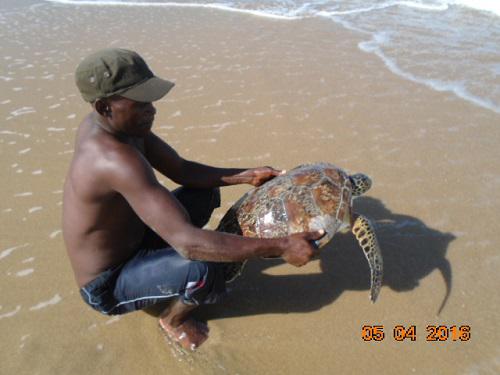Edward Mwamuye
Other projects
The project aim is to enhance the conservation of sea turtles and mangroves by promoting sustainable utilization of marine resources through enhanced community participation. The project will promote and encourage sustainable fishing practices to reduce the pressures of overfishing and illegal fishing that threaten sea turtles.

Poverty, increasing population pressure, and lack of education and awareness, commonly result in destructive habits of the marine environment. Lack of capacity of local community in natural resource management and governance, killing of sea turtles, mangrove destruction and poor implementation of government policies regarding natural resource management are among the causes of a disintegrating coastal and marine ecosystem. This project seeks to empower the local community through capacity building, promotion of sustainable fishing practices, provision of alternative sources of livelihood and wood products so as reduce pressure on the natural resources, reduce poverty levels and conserve sea turtles

Inadequate alternative livelihood spurred by high levels of poverty, unemployment, salt mining and demand for fuel wood and building poles has led to unsustainable utilization of mangrove resources thus altering forest ecosystem and diminished carbon sequestration capabilities. Fish breeding sites have diminished therefore reducing fish stocks.
The project intends to contribute significantly to conserve the coastal marine through an effective model for participatory community involvement. The ultimate goal is to ensure that marine resources are used and managed appropriately, to improve livelihoods for people while also delivering important environmental services in protection of globally important biodiversity in perpetuity. The initiative will assist the government of Kenya [GoK] in building local conservation capacity. It will help implement GoK’s forest policy and legislation and the environmental management and co-ordination act, which underscore the importance of community-based natural resources management. Most important this project will be major contribution to the implementation of the sea turtle strategic management plan recently produced with support from the USAID through the Kenya Wildlife Service.
The rationale behind this project is that, by working together, people will able to achieve more than individuals or organizations working on their own, and involving those affected is likely to result in a better and more acceptable long-term solution. These desired outcomes will thus led to increased acknowledgement of participatory activities as a means of achieving environmental and sustainability goals. Overfishing and mangrove destruction will be reduced through enhanced sustainable resource utilization practices.
The envisaged contribution of the project will be a contribution towards national and regional priority issues in the recovery of sea turtle populations. The project will also see the rehabilitation of sea turtle habitats and destructed areas. The project will promote community participation, enhance conservation awareness outreach programme and built long-term capacity for sustained sea turtle conservation in Kenya.